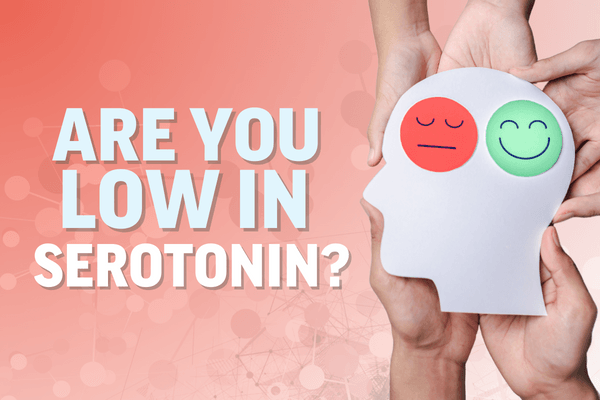
Health Benefits of Ashwagandha Proven By Science
Ashwagandha (withania somnifera) is popularly known as the king of Ayurvedic herbs. Ayurveda is a form of alternative medicine based on Indian principles of natural healing. It is an incredibly healthy botanical, often referred to as Indian Ginseng. It is a small plant with yellow flowers that is native to India and North Africa.
It is classified as an adaptogenic herb, and while all adaptogens reduce stress (cortisol), ashwagandha’s ability to do so is superior to the rest.
Ashwagandha has many benefits for the brain, where it can increase energy, sharpen focus, and reduce symptoms of anxiety and depression. It has been used this way for over 3,000 years.
Its name literally means “smell of a horse” since it was said to bestow the strength and stamina of a horse on anyone who used it. An Ayurvedic scholar from 100BC, Charaka, said of Ashwagandha, “One obtains longevity, regains youth, gets a sharp memory and intellect and freedom from diseases, gets a lustrous complexion, and strength of a horse.”
The most well-known active ingredients in Ashwagandha are withanolides. Alongside these valuable compounds are many other beneficial elements, including flavonoids and antioxidants such as catalase, superoxide dismutase and glutathione, which is known as the “mother of all antioxidants.” It also contains alkaloids, amino acids (including tryptophan), neurotransmitters, sterols, tannins, lignans and triterpenes. It is these valuable compounds together that allow for ashwagandha’s hugely beneficial pharmacological activities.
Due to the combined benefits of the herb’s valuable compounds, we used a 20:1 full-spectrum concentrated extract, which is made up of at least 5% withanolides. This means that each 100mg serve in a Savvy product is equivalent to 2 grams of this superherb!
The reason we love it in our Savvy products is because Ashwagandha has been proven to:
- Reduce stress, anxiety, and mental fatigue; and
- Increase mood, enhance brain function and improve memory; and
- Boost performance + energy while being a potent anti-inflammatory and antioxidant; and
- Support healthy brains and hearts.
We will now delve into the scientific evidence behind the benefits of this amazing herb. For each scientific resource, at Savvy, we have referenced the study, linked to it and also provided an interesting quote from the study. Occasionally, we will also provide further commentary on the study.
Please note that we have referenced the scientific literature that support the benefits of ashwagandha, and to make it easier to read, we have 'indented' every second resource.
Each reference will have a quoted excerpt from the scientific literature, and occasional observations made about the evidence as well.
We really hope you enjoy a look into the many years of research we have compiled when formulating Savvy...
Benefit 1 - Ashwagandha can reduce stress, anxiety, and mental fatigue
Ashwagandha’s chief benefit is that it actually annihilates stress in the body. Ashwagandha improves our resistance to stress and studies show that it thereby improves people’s self-assessed quality of life. Ashwagandha is extremely dynamic in how it combats stress and fatigue!
The study, below, found ashwagandha lowered stress and anxiety by over 60% from consistent use. The reference to the study is:
Chandrasekhar, K. et al. ‘A prospective, randomized double-blind, placebo-controlled study of safety and efficacy of a high-concentration full-spectrum extract of ashwagandha root in reducing stress and anxiety in adults.’ in Indian Journal of psychological medicine. Volume 34, issue 3, July 2012, pp 255-262. [Link]
After the findings in this study, the authors concluded:
“The findings of this study suggest that a high-concentration full-spectrum Ashwagandha root extract safely and effectively improves an individual's resistance towards stress and thereby improves self-assessed quality of life.”
The above study found that Ashwagandha helps with multiple levels of stress, these being cortisol levels, anxiety and insomnia. In the study, 64 healthy participants were enrolled, between the ages of 18 and 54. Half were given Ashwagandha daily for 60 days, and the other half got a placebo.
The Ashwagandha group saw improvements to their stress baseline by 69.7%, 64.2%, and 75.6%. These improvements were across all three measures including cortisol, anxiety, and insomnia.
The below graph from this trial clearly shows the power of this herb as it influences the body over 60 days from baseline!

PSS is the Perceived Stress Score (which dropped by 44% over 60 days)
GHQ-28 measures levels of anxiety, nervousness, social dysfunction, depression. (Levels of which dropped by 72.3% over 60 days)
DASS (Depression Anxiety Stress Scale) (Levels of which dropped by 71.6% over 60 days)
Serum Cortisol levels - (useful to assess the effect of the treatment on cortisol (the stress hormone in your body) level) (Which dropped by 27.9% over 60 days)
Further scientific evidence that support the benefits of Ashwagandha:
Andrade, C. et al. ‘A double-blind, placebo-controlled evaluation of the anxiolytic efficacy ff an ethanolic extract of withania somnifera.’ in Indian journal of psychiatry. Volume 42, Issue 3, July 2000, pp 295-301 [Link]
In the above study, over 6 weeks, 88.2% of the people who took ashwagandha reported a reduction in anxiety.
“It is concluded that this ethanolic extract of Withania somnifera has useful anxiolytic potential.”
Head, K and Kelly, G. ‘Nutrients and Botanicals for Treatment of Stress: Adrenal Fatigue, Neurotransmitter Imbalance, Anxiety, and Restless Sleep’ in Alternative Medicine Review, Volume 14, Issue 2, 2009, pp 114-140 [Link]
“...it [Ashwaganda] has shown anti-stress and anabolic activity”
Benefit 2 - Ashwagandha can increase mood, sharpen focus and enhance memory
Ashwagandha supplements may improve mood, brain function, memory, reaction times and the ability to perform tasks.
Scientific Studies:
Kurapati, KR. et al. ‘Ashwagandha (Withania somnifera) reverses β-amyloid1-42 induced toxicity in human neuronal cells: implications in HIV-associated neurocognitive disorders (HAND).’ in PLos One, Volume 8, Issue 10, October 2013 [Link]
“Withania somnifera (WS) also known as 'ashwagandha' is used widely in Ayurvedic medicine as a nerve tonic and memory enhancer.”
Chandrasekhar, K. et al. ‘A prospective, randomized double-blind, placebo-controlled study of safety and efficacy of a high-concentration full-spectrum extract of ashwagandha root in reducing stress and anxiety in adults.’ in Indian Journal of psychological medicine. Volume 34, issue 3, July 2012, pp 255-262 [Link]
In the above 60-day study in stressed adults, those who took 600 mg per day reported a 79% reduction in severe depression. Interestingly, at the same time, the placebo group reported a 10% increase.
“Ayurvedic classical texts…and clinical studies describe Ashwagandha as a safe and effective adaptogen.”
Sehgal, N. et al. ‘Withania somnifera reverses Alzheimer's disease pathology by enhancing low-density lipoprotein receptor-related protein in liver’ in Proceedings of the National Academy of Sciences of the United Stated of America. Volume 109, Issue 9, February 2012, pp 3510-3515 [Link]
“Withaferin A and withanolide D are the two main withanolides in ashwagandha that are used to improve cognitive function. The above study aimed to test their cognitive-improving abilities, researchers found that they helped to promote cell outgrowth, reverse behavioral deficits and plaque buildup, and reduce amyloid beta burden, which is crucially involved in the development of Alzheimer’s disease.”
Benefit 3 - Ashwagandha can boost performance + energy while being a potent anti-inflammatory and antioxidant
Because ashwagandha works as an adaptogen that can reduce the body’s stress hormones, it can help to boost your immune system and reduce inflammation within the body. Due to its positive, calming-yet-energising effects on the brain, and its ability to lower stress hormones, ashwagandha showed improvements in concentration, motivation and stamina in conducted studies.
Scientific studies:
Sandhu, JS. et al. ‘Effects of Withania somnifera (Ashwagandha) and Terminalia arjuna (Arjuna) on physical performance and cardiorespiratory endurance in healthy young adults.’ in International journal of Ayurveda research. Volume 1, Issue 3, July 2010, pp 144-149 [Link]
“Withania somnifera may therefore be useful for generalized weakness and to improve speed and lower limb muscular strength and neuro-muscular co-ordination.”
Khan, MA. et al. ‘Effect of Withania somnifera (Ashwagandha) root extract on amelioration of oxidative stress and autoantibodies production in collagen-induced arthritic rats.’ in Journal of complementary & integrative medicine. Volume 12, Issue 2, June 2015, pp 117-125 [Link]
“The results showed that [withania somnifera] exhibited antioxidant and anti-arthritic activity and reduced inflammation in CIA rats and suggests the potential use of this plant in the treatment of arthritis.” “Similarly, oxidative stress in CIA rats was ameliorated by treatment with different doses of WSAq, as evidenced by a decrease in lipid peroxidation and glutathione-S-transferase “
Trivedi, M. et al. ‘Effect of a Novel Ashwagandha-based Herbomineral Formulation on Pro-inflammatory Cytokines Expression in Mouse Splenocyte Cells: A Potential Immunomodulator’ in Pharmacognosy Magazine, Volume 13, Issue 1, Jan 2017, pp 90-94 [Link]
“These observations indicated that [ashwagandha] has potential effects in downregulating the immune system and might be developed as a useful anti-inflammatory product for various inflammatory disorders.”
Benefit 4- Ashwagandha can support healthy brains and hearts
Ashwagandha has also been considered a healthy supplement for the nervous and cardiovascular systems.
Scientific studies:
Singh, N. et al. ‘An Overview on Ashwagandha: A Rasayana (Rejuvenator) of Ayurveda’ in African Journal of Traditional, Complementary and Alternative Medicines. Volume 8, Issue 5, pp 208-213 [Link]
“The available scientific data support the conclusion that Ashwagandha is a real potent regenerative tonic (Rasayana of Ayurveda), due to its multiple pharmacological actions like anti-stress, neuroprotective, antitumor, anti-arthritic, analgesic and anti-inflammatory”
Sandhu, J. et al. ‘Effects of Withania somnifera (Ashwagandha) and Terminalia arjuna (Arjuna) on physical performance and cardiorespiratory endurance in healthy young adults’ in International Journal of Ayurveda Research, Volume 1, Issue 3, July 2010, pp 144-149 [Link]
“Withania somnifera may therefore be useful for generalized weakness and to improve speed and lower limb muscular strength and neuro-muscular co-ordination.”








